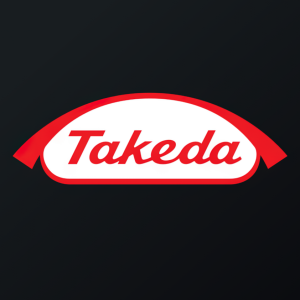New Phase 3 Data Show Takeda’s Dengue Vaccine Delivers 7 Years of Sustained Protection Against Infection and Hospitalization
- Findings Reinforce QDENGA’s Long-Term Safety Profile and Two-Dose Vaccination Schedule
- QDENGA is the Longest-Studied Dengue Vaccine and the Only Approved for Use Regardless of Prior Disease Exposure
- Takeda is Expanding Global Access to QDENGA in Partnership with National Immunization Programs, Private Payors and Public Health Coalitions, with 18.6 Million Doses Distributed in 11 Endemic Countries
“We are seeing an unprecedented surge in dengue, with over 14 million cases reported across more than 100 countries in 2024 alone, largely driven by the impacts of climate change and inadequate urbanization.
After 4.5 years, two doses of QDENGA provided
“QDENGA is the most comprehensively studied dengue vaccine, with more than 60,000 participants globally in the clinical program, and these long-term data highlight the durability of its safety and efficacy profile, across diverse populations worldwide," said Derek Wallace, M.D., president of the Global Vaccine Business Unit at Takeda. “We are proud to have worked hand-in-hand with the clinical trial participants, collaborators and investigators whose contributions have been integral to the success of the TIDES trial and played a role in helping us move closer to a dengue-free world.”
Takeda continues to invest in post-marketing research through real-world evidence generation and ongoing pharmacovigilance to deepen understanding of the vaccine’s safety and impact. This includes an Impact Study in the municipality of Dourados,
Since its first approval in
These data were presented at the World Society for Pediatric Infectious Diseases (WSPID) 14th Annual Congress on October 29, 2025.2 Takeda plans to share results from additional non-endemic booster studies at the American Society of Tropical Medicine and Hygiene (ASTMH) Annual Congress on November 11, 2025.
About the Phase 3 TIDES (DEN-301) Trial
The double-blind, randomized, placebo-controlled Phase 3 TIDES trial evaluated the safety and efficacy of two doses of TAK-003 in the prevention of laboratory-confirmed symptomatic dengue fever of any severity and due to any of the four dengue virus serotypes in more than 20,000 healthy children and adolescents 4-16 years of age.3 Study participants were randomized 2:1 to receive two doses of TAK-003 0.5 mL or placebo on months 0 and 3, administered subcutaneously.3 The study is comprised of five parts. Part 1 and the primary endpoint analysis evaluated VE and safety through 12 months after the second dose.3 Part 2 continued for an additional six months to complete the assessment of the secondary endpoints of VE by serotype, baseline serostatus and disease severity, including VE against hospitalized dengue.3 Part 3 evaluated VE and long-term safety by following participants for an additional two and a half to three years, as per World Health Organization recommendations.4 Part 4 evaluated efficacy and safety for 13 months following booster vaccination, and Part 5 evaluated long-term efficacy and safety for one year following the completion of Part 4.3
The trial took place at sites across 8 dengue-endemic countries in
About QDENGA®▼ (Dengue Tetravalent Vaccine [Live, Attenuated])
QDENGA® (TAK-003) is a dengue vaccine that is based on a live-attenuated dengue serotype 2 virus, which provides the genetic “backbone” for all four dengue virus serotypes and is designed to help protect against any of these serotypes.6
In the European Union (EU) Member States, QDENGA is indicated for the prevention of dengue disease in individuals from four years of age and should be administered subcutaneously as a 0.5 mL dose at a two-dose (0 and 3 months) schedule pursuant to approved dosing regimen.7
Always consult your local prescribing information before prescribing. The local label may vary.
Important Safety Information
Please consult the Summary of Product Characteristics (SmPC) before prescribing.
Guidance for use: QDENGA should be administered by subcutaneous injection preferably in the upper arm in the region of deltoid. QDENGA must not be injected intravascularly, intradermally or intramuscularly. Vaccination should be postponed in subjects suffering from an acute severe febrile illness. The presence of a minor infection, such as a cold, should not result in a deferral of vaccination. Vaccination should be preceded by a review of the individual’s medical history (especially with regards to previous vaccination and possible hypersensitivity reactions which occurred after vaccination). Appropriate medical treatment and supervision must always be readily available in the event of a rare anaphylactic reaction following administration of the vaccine. Anxiety-related reactions, including vasovagal reactions (syncope), hyperventilation or stress-related reactions may occur in association with vaccination as a psychogenic response to the needle injection. It is important that precautions are in place to avoid injury from fainting. A protective immune response with QDENGA may not be elicited in all vaccinees against all serotypes of dengue virus and may decline over time. It is currently unknown whether a lack of protection could result in an increased severity of dengue. It is recommended to continue personal protection measures against mosquito bites after vaccination. Individuals should seek medical care if they develop dengue symptoms or dengue warning signs.
Contraindications: Hypersensitivity to the active substances or to any of the excipients listed in section 6.1 or hypersensitivity to a previous dose of QDENGA. Individuals with congenital or acquired immune deficiency, including those receiving immunosuppressive therapies such as high doses of systemic corticosteroids (e.g. 20 mg/day or 2 mg/kg body weight/day of prednisone for 2 weeks or more) within 4 weeks prior to vaccination, or any other medicinal product with known immunosuppressive properties including chemotherapy. The time to avoid vaccination after immunosuppressive treatment should be considered on an individual basis. Individuals with symptomatic HIV infection or with asymptomatic HIV infection when accompanied by evidence of impaired immune function. Pregnant women (see section 4.6). Breast-feeding women (see section 4.6).
▼ This medicinal product is subject to additional monitoring. This will allow quick identification of new safety information. Healthcare professionals are asked to report any suspected adverse reactions. See section 4.8 for how to report adverse reactions.
Adverse Reactions: Most frequently reported reactions in subjects 4 to 60 years of age were injection site pain (
For full prescribing information, please see the Summary of Product Characteristics (SmPC) for QDENGA®▼.
Please consult with your local regulatory agency for any approved labeling in your country.
The drug information contained herein is intended to disclose corporate information. Nothing contained in this document should be considered a solicitation, promotion, or indication for any prescription drug, including those currently under development.
About Dengue
Dengue is a rapidly spreading mosquito-borne viral disease that is now endemic in more than 100 countries on all continents.8 Dengue is mainly spread by Aedes aegypti mosquitoes and, to a lesser extent, Aedes albopictus mosquitoes.8 It is caused by any of four dengue virus serotypes, each of which can cause dengue fever or severe dengue.8 The prevalence of individual serotypes varies across different geographies, countries, regions, seasons and over time.8 Infection by one can provide lifelong protection against that one dengue serotype and temporary immunity against the three other serotypes.8 A second infection with a different serotype can be worse in some cases.8
Takeda’s Commitment to Vaccines
Vaccines prevent 3.5 to 5 million deaths each year and have transformed global public health.9 For more than 70 years, Takeda has supplied vaccines to protect the health of people in
About Takeda
Takeda is focused on creating better health for people and a brighter future for the world. We aim to discover and deliver life-transforming treatments in our core therapeutic and business areas, including gastrointestinal and inflammation, rare diseases, plasma-derived therapies, oncology, neuroscience and vaccines. Together with our partners, we aim to improve the patient experience and advance a new frontier of treatment options through our dynamic and diverse pipeline. As a leading values-based, R&D-driven biopharmaceutical company headquartered in
Important Notice
For the purposes of this notice, “press release” means this document, any oral presentation, any question and answer session and any written or oral material discussed or distributed by Takeda Pharmaceutical Company Limited (“Takeda”) regarding this release. This press release (including any oral briefing and any question-and-answer in connection with it) is not intended to, and does not constitute, represent or form part of any offer, invitation or solicitation of any offer to purchase, otherwise acquire, subscribe for, exchange, sell or otherwise dispose of, any securities or the solicitation of any vote or approval in any jurisdiction. No shares or other securities are being offered to the public by means of this press release. No offering of securities shall be made in
The companies in which Takeda directly and indirectly owns investments are separate entities. In this press release, “Takeda” is sometimes used for convenience where references are made to Takeda and its subsidiaries in general. Likewise, the words “we”, “us” and “our” are also used to refer to subsidiaries in general or to those who work for them. These expressions are also used where no useful purpose is served by identifying the particular company or companies.
Forward-Looking Statements
This press release and any materials distributed in connection with this press release may contain forward-looking statements, beliefs or opinions regarding Takeda’s future business, future position and results of operations, including estimates, forecasts, targets and plans for Takeda. Without limitation, forward-looking statements often include words such as “targets”, “plans”, “believes”, “hopes”, “continues”, “expects”, “aims”, “intends”, “ensures”, “will”, “may”, “should”, “would”, “could”, “anticipates”, “estimates”, “projects” or similar expressions or the negative thereof. These forward-looking statements are based on assumptions about many important factors, including the following, which could cause actual results to differ materially from those expressed or implied by the forward-looking statements: the economic circumstances surrounding Takeda’s global business, including general economic conditions in
Medical Information
This press release contains information about products that may not be available in all countries, or may be available under different trademarks, for different indications, in different dosages, or in different strengths. Nothing contained herein should be considered a solicitation, promotion or advertisement for any prescription drugs including the ones under development.
References
1 Tricou, V. Efficacy and Safety of Takeda’s Tetravalent Dengue Vaccine Candidate (TAK-003) After 4.5 Years of Follow-Up. Presented at the 8 Northern European Conference of Travel Medicine; June 2022.
2 Escudero, I. Evaluation of a Booster Dose of the Tetravalent Dengue Vaccine, TAK-003, in Healthy Children in Dengue-Endemic Regions (DEN-301). Oral presentation at: World Congress of the World Society for Pediatric Infectious Diseases (WSPID 2025), October 29, 2025.
3 ClinicalTrials.Gov. Efficacy, Safety and Immunogenicity of Takeda’s Tetravalent Dengue Vaccine (TDV) in Healthy Children (TIDES). Retrieved November 2025.
4 World Health Organization (WHO) Technical Report Series No. 979, 2013 Annex 2. Guidelines on the quality, safety and efficacy of dengue tetravalent vaccines (live, attenuated). https://cdn.who.int/media/docs/default-source/biologicals/vaccine-standardization/dengue/trs-979-annex-2-dengue.pdf?sfvrsn=bd659777_2&download=true.
5 Murray, et al. Epidemiology of dengue: past, present and future prospects. Clin Epidemiol. 2013 Aug 20;5:299-309. doi: 10.2147/CLEP.S34440.
6 Huang CY-H, et al. Genetic and phenotypic characterization of manufacturing seeds for tetravalent dengue vaccine (DENVax). PLoS Negl Trop Dis. 2013;7:e2243
7 Takeda. QDENGA Summary of Product Characteristics. Retrieved November 2025.
8 World Health Organization. Dengue. Published August 21, 2025.
9 World Health Organization. Vaccines and immunization. Retrieved November 2025.
View source version on businesswire.com: https://www.businesswire.com/news/home/20251030478402/en/
Media:
Takeda Media Relations
media_relations@takeda.com
Source: Takeda Pharmaceutical Company Limited







